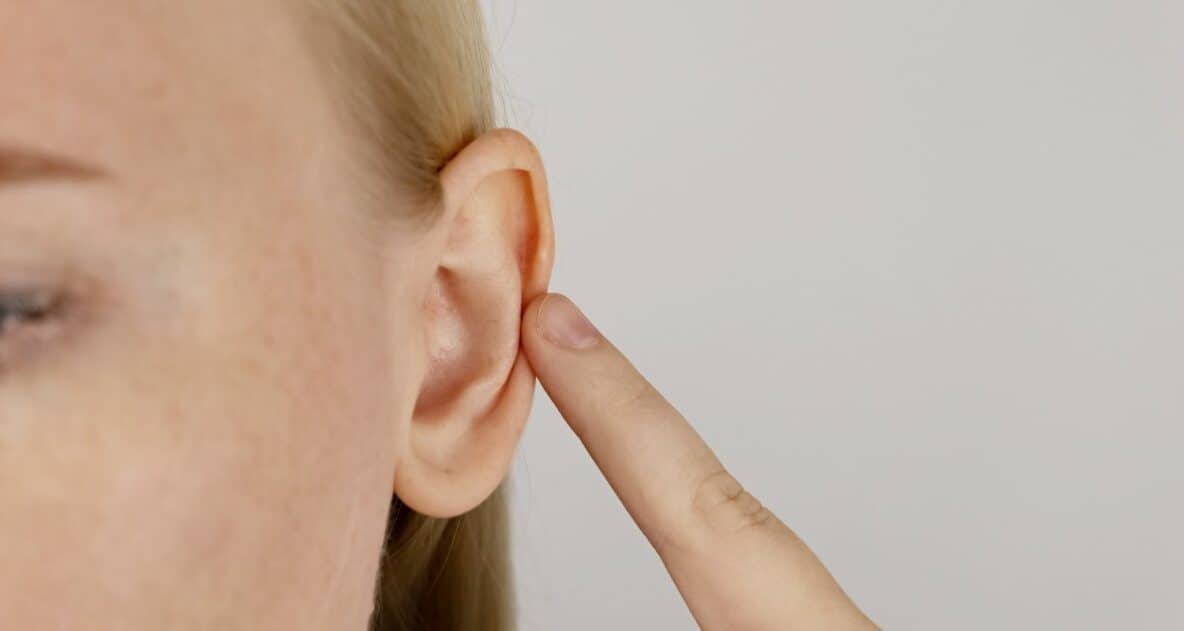Many Americans suffer from debilitating hearing loss. It’s estimated that more than 30 million people over the age of 12 in the United States show hearing loss in both ears as determined by a hearing exam.
But there is a growing body of evidence suggesting that a large portion of people live with unilateral hearing loss or single-sided hearing loss. This means that their hearing loss is contained in just one of their ears. You might think of George Bailey from It’s a Wonderful Life, famously deaf in one ear.
How common is single-sided hearing loss?
A recent study published in The Laryngoscope determined that approximately 13 million Americans had unilateral hearing loss, or hearing loss just in one ear. Around 345,000 American adults have single-sided deafness or little to no hearing in one ear.
Symptoms of single-sided hearing loss
We like to think that we are equally proportioned from one side to another, but that is rarely the case. Just as one foot is likely larger than the other, so may our hearing capabilities vary from one ear to the other. We can easily uncover whether hearing loss is present in one or both of your ears with a simple hearing exam.
People may not even be aware that their hearing loss is centered upon only one ear, particularly if the hearing loss is mild. That said, people with unilateral hearing loss probably have trouble when they try to determine the location of a sound. It’s a trait that people with healthy hearing in both ears can do quite naturally, or even subconsciously. When a sound is present and heard with two ears, our brain compares the volume and determines the direction the sound is coming from. The ability to locate a sound would be severely diminished or even impossible depending on the degree of hearing loss in one ear.
People with single-sided hearing loss also tend to subconsciously or consciously turn their ‘good’ ears towards sounds they want to hear. If you are in conversation with another person, you might angle your body so that your hearing ear is located in a prime position to receive the sound of their voice. Alternatively, you might always place the phone at one ear when on a phone call.
If you have tinnitus in just one ear, that might also be evidence of hearing loss in the same ear.
Causes of single-sided hearing loss
There are all sorts of reasons why single-sided hearing loss occurs. 1 in 1,000 babies is born without hearing in one ear.
An injury or illness may cause you to lose hearing in just one of your ears. Remember that George Bailed, fictional though he may be, developed his unilateral hearing loss after a terrible ear infection.
If you have a hobby or profession that exposes just one side of your head to excessive noise and you haven’t used hearing protection, you may find that you’ve developed noise-induced hearing loss in just one ear.
Treatment for single-sided hearing loss
Once you have a reliable diagnosis from an audiologist, you may choose to explore a hearing aid for your impacted ear. Choosing to treat single-sided hearing loss could have massive payoffs in the form of recouping your ability to determine where sounds are coming from. This gives you a greater sense of safety out in the world, particularly if you spent most of your life hearing in both ears.
Binaural hearing, which accounts for our ability to determine location from sound, is often so developed that it becomes a subconscious means of gathering information from the world. If you are accustomed to relying on this sense, your habits may still try to fall back on a tool that isn’t there once single-sided hearing loss enters the picture.
We are also more able to filter out background noise when we can hear with both ears. Treating the ear with hearing loss may make it easier for you to hear correctly in loud or group settings.
Schedule a hearing consultation
It can be difficult to diagnose hearing loss in general, but particularly so with single-sided hearing loss. If you think that you might be experiencing this condition, schedule a hearing consultation today. Our team will lead you through a hearing exam to determine if hearing loss is impacting your life. From there, we’ll work together to explore treatment options.

